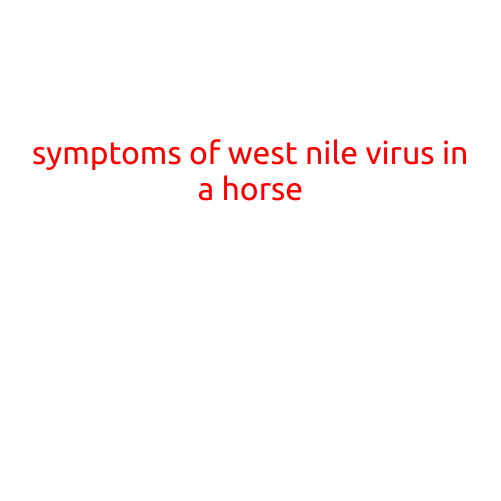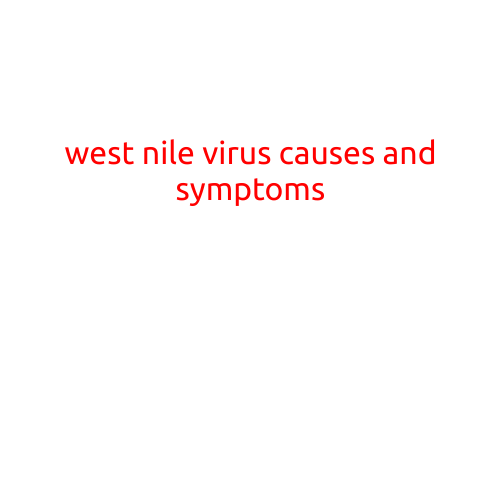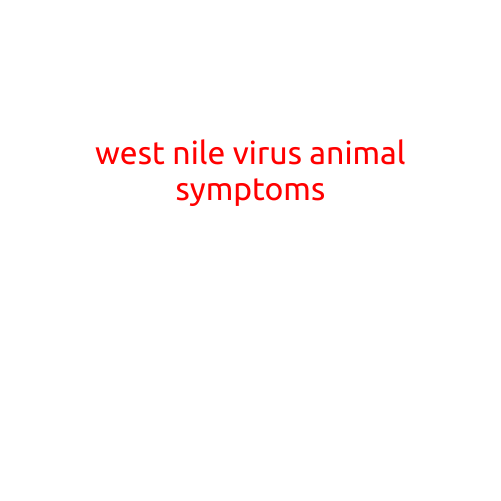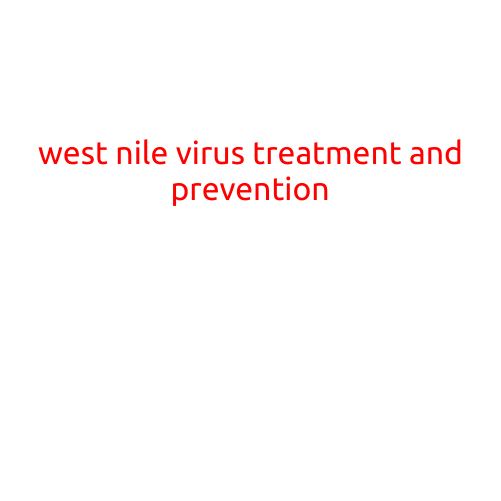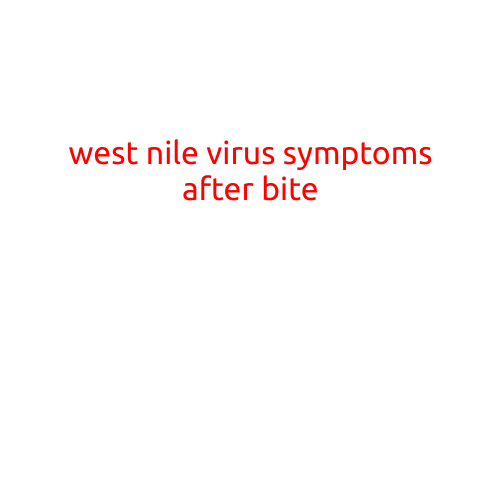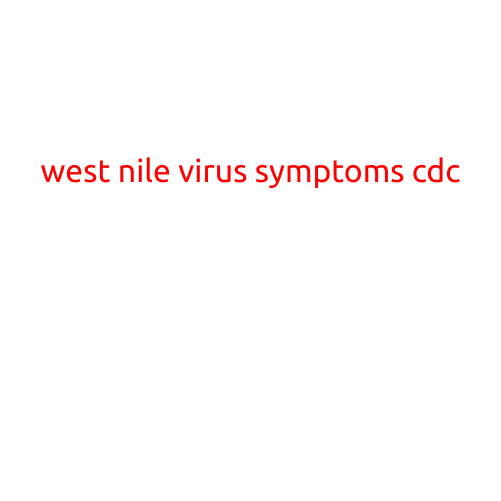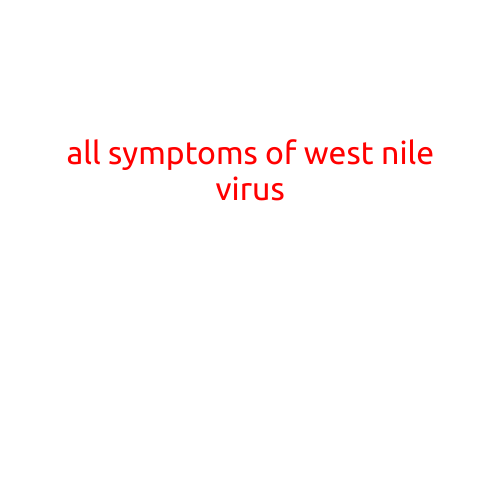
All Symptoms of West Nile Virus: What to Know
West Nile virus (WNV) is a mosquito-borne illness that can cause a range of symptoms, from mild to severe. According to the Centers for Disease Control and Prevention (CDC), WNV is a significant public health concern, with cases reported in the United States and around the world. In this article, we’ll explore all the symptoms of West Nile virus, from initial infection to severe complications.
Initial Symptoms
The early symptoms of West Nile virus are often mild and flu-like, making it difficult to diagnose correctly. Typical initial symptoms include:
- Fever: A high fever, often accompanied by chills, is one of the most common symptoms of WNV.
- Headache: Severe headaches, including migraines, are common in individuals infected with WNV.
- Fatigue: Extreme tiredness and weakness are frequent symptoms of WNV.
- Muscle pain: Pain or stiffness in the muscles, particularly in the back, neck, and thighs, is another common symptom.
- Swollen lymph nodes: Swelling in the neck or groin area, caused by enlarged lymph nodes, can occur.
- Rash: A skin rash, usually characterized by small, red spots or patches, may appear.
Severe Symptoms
In a small percentage of cases, WNV can lead to severe complications, which can be life-threatening. Severe symptoms may include:
- Meningitis: Inflammation of the membranes surrounding the brain and spinal cord, leading to severe headache, stiff neck, and fever.
- Encephalitis: Inflammation of the brain, causing confusion, disorientation, seizures, and altered mental status.
- Acute flaccid paralysis: Sudden onset of paralysis, usually starting in the legs and arms, which can be a fatal complication.
- Constitutional symptoms: Severe fatigue, loss of appetite, and weight loss can indicate severe illness.
- Respiratory failure: In severe cases, WNV can cause respiratory failure, requiring mechanical ventilation.
- Cardiovascular problems: West Nile virus can also cause cardiac arrhythmias, heart attacks, and strokes.
Advanced Symptoms
In rare cases, WNV can cause long-term damage, including:
- Chronic encephalitis: Prolonged inflammation of the brain, leading to permanent damage, memory loss, and cognitive impairment.
- Meningitis with residual symptoms: Survivors of severe meningeal infections may experience residual symptoms, such as chronic headache, cognitive impairment, or memory loss.
- Polyneuropathy: A condition characterized by widespread nerve damage, causing numbness, weakness, or paralysis.
Prevention
While there is no vaccine against WNV, prevention measures can significantly reduce the risk of infection. These include:
- Wear protective clothing: Cover exposed skin with long-sleeved shirts, long pants, and socks when outdoors, especially during peak mosquito hours (dawn and dusk).
- Use insect repellent: Apply insect repellents containing DEET, picaridin, or oil of lemon eucalyptus to exposed skin and clothing.
- Eliminate breeding sites: Remove standing water and debris around homes and local areas to prevent mosquito breeding.
- Install window and door screens: Ensure all windows and doors have proper screens to prevent mosquitoes from entering homes.
Conclusion
West Nile virus is a serious illness with a range of symptoms, from mild to severe. Recognizing the signs and symptoms of WNV is crucial for prompt diagnosis and treatment, which can significantly improve outcomes. By understanding the symptoms of WNV and taking preventive measures, individuals can reduce their risk of infection and help prevent the spread of this disease. If you suspect you or a family member may be infected with WNV, consult a healthcare professional immediately.
